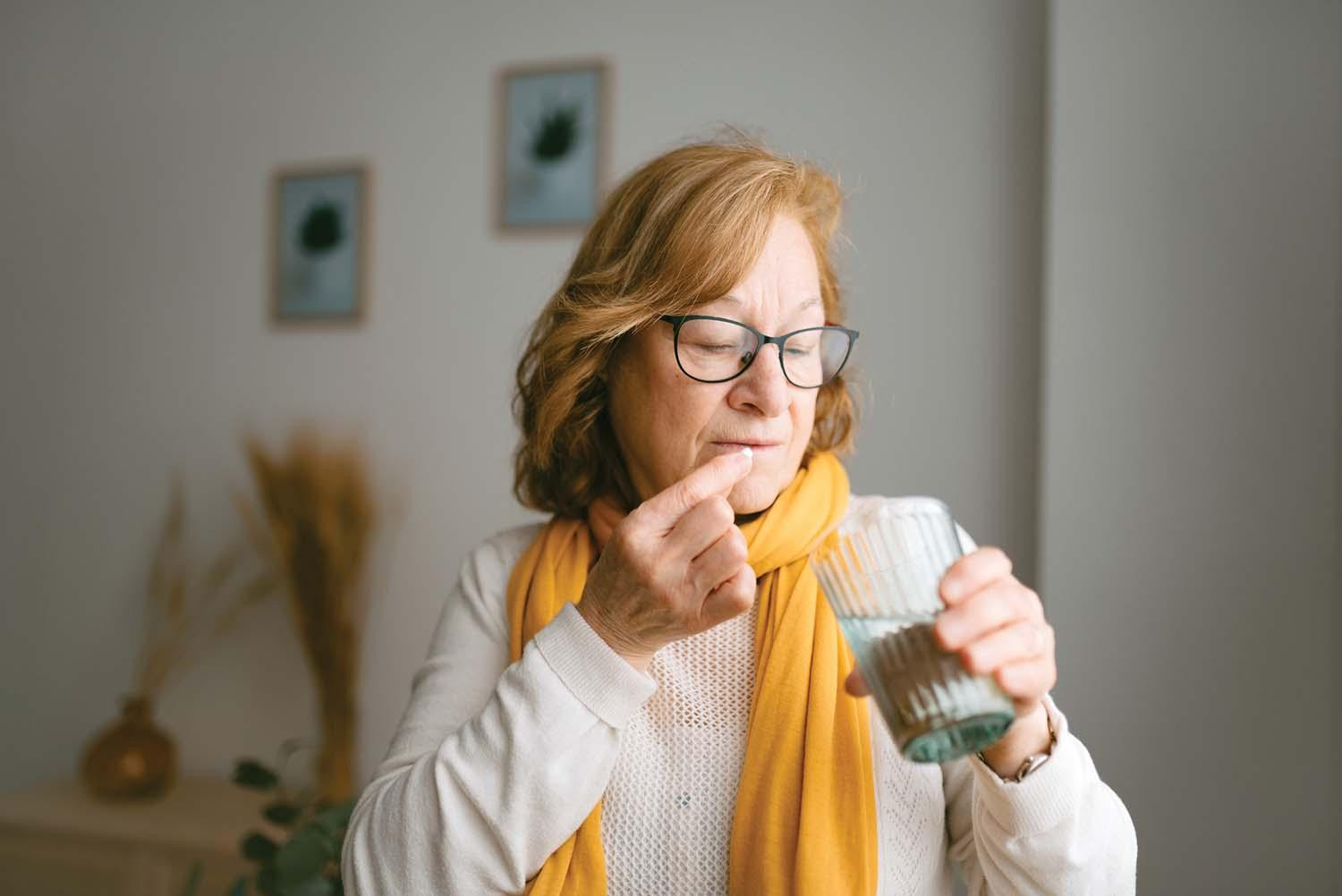
Counting steps is good — is combining steps and heart rate better?

Appendix pain: Could it be appendicitis?

Can saw palmetto treat an enlarged prostate?

How does Ozempic work? Understanding GLP-1s for diabetes, weight loss, and beyond

Zinc: What it does for the body, and the best food sources

Respiratory health harms often follow flooding: Taking these steps can help

Tips to leverage neuroplasticity to maintain cognitive fitness as you age

Can white noise really help you sleep better?

Celiac disease: Exploring four myths

What is prostatitis and how is it treated?
Medications Archive
Articles
Lipoprotein(a): An update on testing and treatment
High levels of Lp(a)—a fatty particle similar to LDL cholesterol—may double or triple a person's risk of a heart attack. About one in five adults may have elevated levels, which also raises the risk of stroke and aortic stenosis. Unlike LDL, which rises with age and is influenced by diet and exercise, Lp(a) remains largely constant over a person's lifetime, so a one-time test suffices for screening. Lp(a) testing is becoming more common now that five promising new Lp(a) therapies are in development.
Is it safe to stop aspirin a year after a stent?
After a heart attack or stent placement, people typically take a combination of aspirin and another antiplatelet drug. After one year, the new standard practice is to stop the aspirin, in contrast to the previous practice of stopping the other drug.
When pills pose problems
Up to 40% of American adults have reported difficulty swallowing pills. Older adults are more susceptible to this problem, known as dysphagia, because they take more medications. Dysphagia may provoke people to abandon their medication regimen. Problems swallowing pills are typically traceable either to the medication or the person taking it. Drugs can cause dry mouth, affect taste, irritate the esophagus, or cause sedative effects. Conditions that affect swallowing include cancer, stroke, neurological diseases, and hiatal hernia.
Are you taking too many medications?
Many people need to take multiple medications for health and symptom control, but it requires extra attention to prevent risks for drug interactions, dosage errors, and other problems. Several strategies can help, such as learning the names of pills, what they do, and why they're necessary; writing down the day, time, and dose of each drug; using organization tools such as pillboxes and alarms; and scheduling a medication review with a doctor or pharmacist every 12 months, so that unnecessary pills—such as those no longer needed—can be omitted.
These drugs might be best to relieve migraine pain
A 2024 analysis of 137 studies involving almost 90,000 people found that older drugs called triptans are more effective at stopping migraine pain in a moment of agony, compared with newer medications such as ditans and gepants.
What are the risks from taking statins?
The two main side effects caused by statins are muscle aches (which disappear once the drug is stopped) and a higher risk of diabetes (which is most common in people with obesity and prediabetes).
Think your child has ADHD? What your pediatrician can do
Problems with attention and focus, impulsivity, and constant motion are possible symptoms of ADHD.

Counting steps is good — is combining steps and heart rate better?

Appendix pain: Could it be appendicitis?

Can saw palmetto treat an enlarged prostate?

How does Ozempic work? Understanding GLP-1s for diabetes, weight loss, and beyond

Zinc: What it does for the body, and the best food sources

Respiratory health harms often follow flooding: Taking these steps can help

Tips to leverage neuroplasticity to maintain cognitive fitness as you age

Can white noise really help you sleep better?

Celiac disease: Exploring four myths

What is prostatitis and how is it treated?
Free Healthbeat Signup
Get the latest in health news delivered to your inbox!
Sign Up











